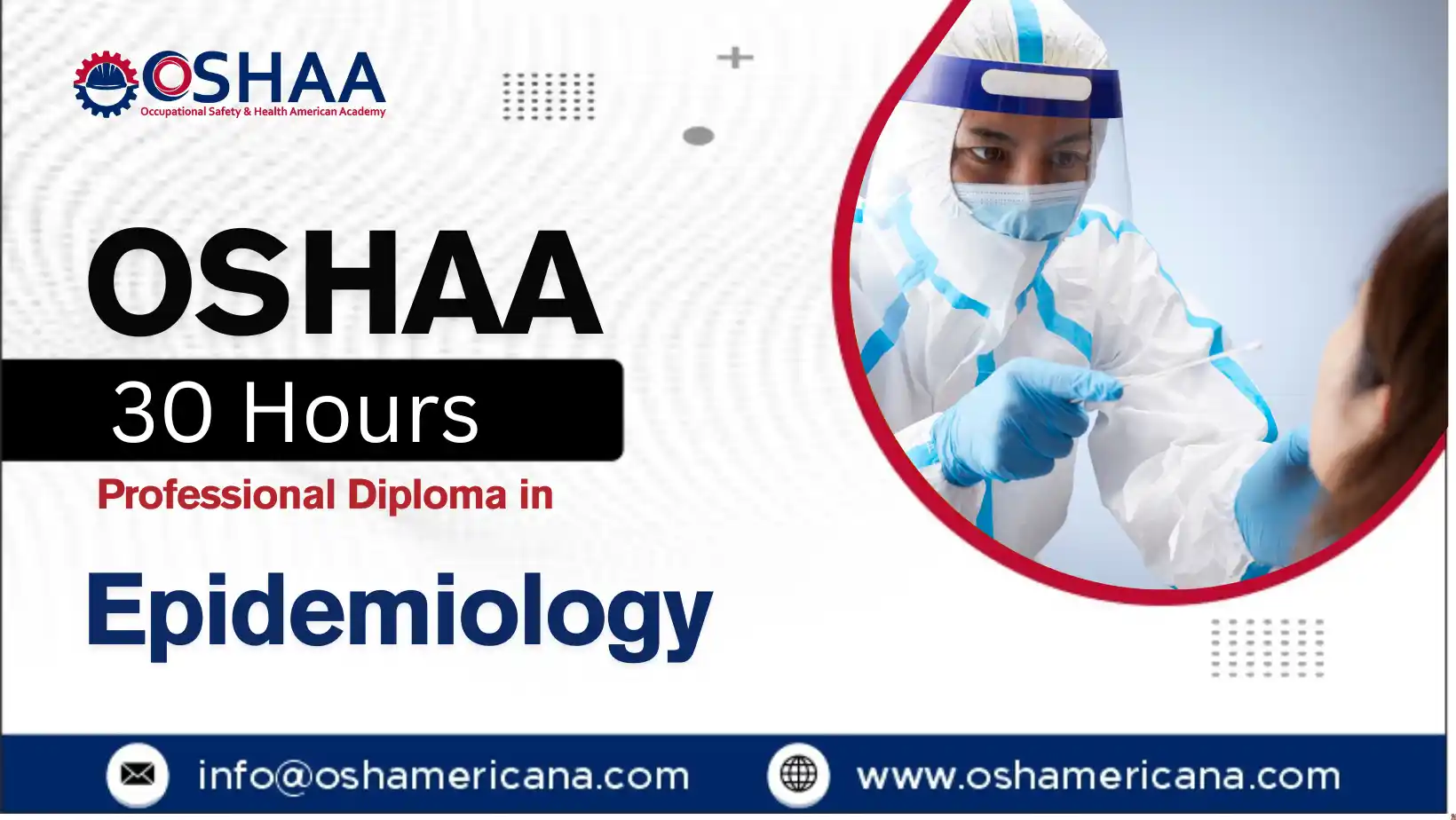Epidemiology is a vital discipline within public health, focusing on the study of disease patterns, causes, and effects in populations. The OSHAA 30-Hours Professional Diploma in Epidemiology provides participants with a solid foundation in the principles and practices essential for understanding and controlling diseases. This course is designed to equip participants with the knowledge and skills required to analyse health data, identify risk factors, and contribute to evidence-based health interventions.
Participants will explore key epidemiological concepts including study designs, data collection methods, and statistical analysis. The course emphasises practical applications, enabling participants to interpret research findings and assess public health risks effectively. By understanding how diseases spread and impact communities, participants are better prepared to support disease prevention and health promotion initiatives.
Critical thinking and data interpretation skills are developed throughout the course, preparing participants to evaluate health information critically. The training also includes case studies and real-world examples to enhance understanding and applicability. Participants will become proficient in designing studies, analysing results, and communicating findings to stakeholders.
Completing the OSHAA 30-Hours Professional Diploma in Epidemiology offers participants a recognised qualification that can advance careers in public health, research, healthcare management, and policy-making. It is suitable for healthcare professionals, researchers, public health workers, and anyone interested in the science of disease control and health improvement.
OSHAA 30-Hours Professional Diploma in Epidemiology
Study Units
Learning Outcomes
Introduction to Epidemiology and Public Health (3 hours)
- Understand the fundamental concepts and scope of epidemiology
- Recognise the role of epidemiology in public health practice
- Identify key terms and definitions used in the field
- Appreciate the historical development and importance of epidemiology
Measures of Disease Frequency and Association (4 hours)
- Calculate and interpret measures such as incidence, prevalence, risk, and rate
- Understand measures of association including relative risk and odds ratio
- Apply these measures to evaluate disease burden and exposure effects
- Differentiate between various epidemiological metrics and their uses
Study Designs in Epidemiology (5 hours)
- Describe major epidemiological study designs including cohort, case-control, and cross-sectional studies
- Understand the strengths and limitations of each study design
- Learn how to select appropriate designs based on research questions
- Develop skills to critically appraise epidemiological studies
Data Collection Methods and Sources (3 hours)
- Identify various methods for collecting epidemiological data
- Understand sources of data such as surveys, registries, and health records
- Learn techniques to ensure data quality and reliability
- Recognise challenges and biases related to data collection
Descriptive Epidemiology and Disease Surveillance (3 hours)
- Describe disease patterns using person, place, and time variables
- Understand the purpose and methods of disease surveillance systems
- Learn to interpret trends and outbreaks through descriptive analysis
- Apply descriptive epidemiology to support public health decision-making
Analytical Epidemiology and Causal Inference (4 hours)
- Understand the principles of analytical epidemiology
- Learn methods to assess causal relationships between exposures and outcomes
- Apply criteria for causation and evaluate evidence critically
- Distinguish between correlation and causation in epidemiological research
Outbreak Investigation and Response (3 hours)
- Understand the steps involved in investigating an outbreak
- Develop skills to collect, analyse, and interpret outbreak data
- Learn strategies for effective outbreak control and prevention
- Recognise the role of communication and coordination during outbreaks
Statistical Analysis and Interpretation in Epidemiology (5 hours)
- Apply basic statistical methods to epidemiological data analysis
- Interpret statistical outputs including confidence intervals and p-values
- Use software tools for epidemiological data analysis
- Develop the ability to communicate statistical findings clearly and accurately
- Gain a comprehensive understanding of epidemiological principles and methods
- Develop the ability to design, conduct, and evaluate epidemiological studies
- Enhance skills in data collection, analysis, and interpretation specific to public health
- Learn to measure disease frequency and assess risk factors effectively
- Acquire expertise in outbreak investigation and disease surveillance
- Improve capacity to apply epidemiological findings to inform public health policies and interventions
- Build critical thinking skills for evaluating research and evidence in health sciences
- Receive a recognised professional qualification to advance careers in public health, research, healthcare management, and policy
- Equip yourself to contribute meaningfully to disease prevention and health promotion efforts
- Enhance communication skills for presenting epidemiological data to diverse audiences
The OSHAA 30-Hours Professional Diploma in Epidemiology is designed for:
- Participants working in public health and healthcare sectors seeking to deepen their understanding of disease patterns and control
- Healthcare professionals, including doctors, nurses, and allied health workers involved in disease prevention and management
- Researchers and analysts aiming to enhance skills in epidemiological study design and data interpretation
- Policy makers and health administrators responsible for developing and implementing health programmes
- Academics and students pursuing careers in health sciences, epidemiology, or public health
- Anyone interested in gaining a solid foundation in epidemiology to support evidence-based health decision-making
This course is suitable for both those new to epidemiology and experienced professionals looking to update or expand their expertise.







